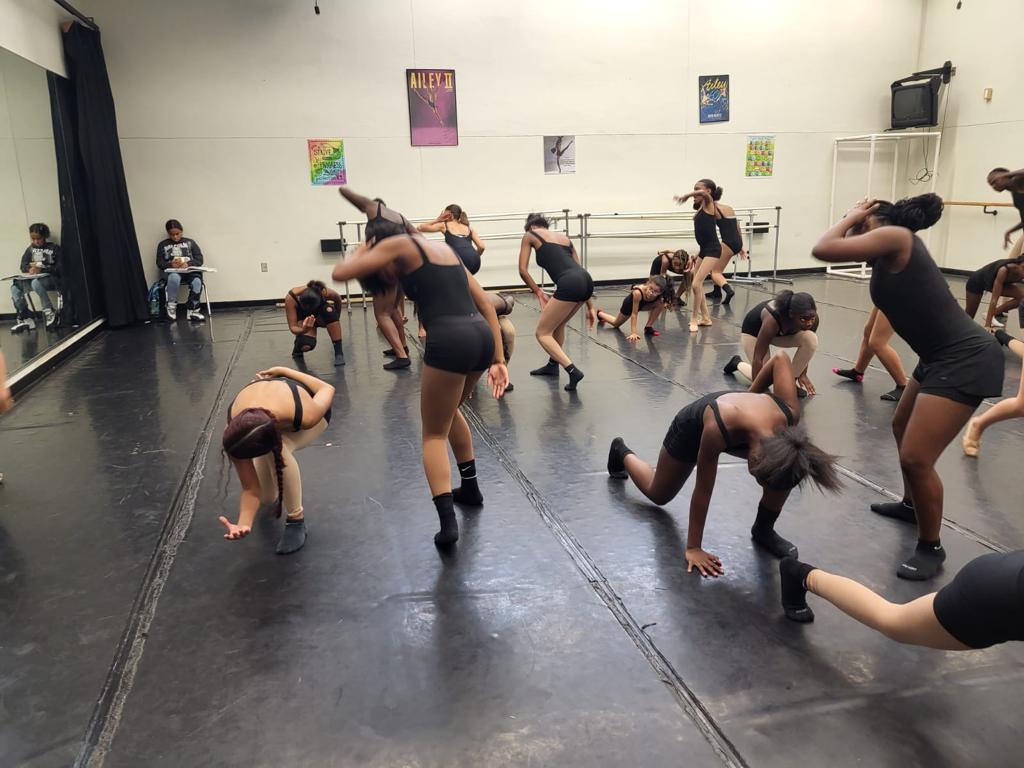Being a good dancer or having a competitive dance team takes dedication, work and effort, and the right kind of instruction and training. Getting enough rest and eating right are two often overlooked but crucial factors in performing at your best.
Dancers put their bodies through a lot during classes, rehearsals, and other forms of rigorous physical preparation. In addition, many performers need nutrition strategies to keep sufficient energy to attend school, performances, work, or weekend tournaments while lowering their chance of injury and maximizing their potential.
A dancer’s daily nutrient goal should be to consume an amount of food that provides enough energy to support intensive dance practices and other tasks while still allowing the body to carry out its necessary physiological processes.
When you dance, your body uses a lot of glucose, or carbs, as fuel. Consequently, a dancer requires to get approximately half of their daily calories from carbohydrates, such as whole cereals, rice, vegetables, fruit, vegetables, milk, and yogurt.
Miami Dance Studio in Florida is one of the best dance studios in Florida. It cares about the health of kids. That’s why below are some tips given for the right nutrition of kids.
Tips for Healthy Holiday Nutrition for Dancers
Follow the given tips to remain healthy and fit while dancing:
Do not Skip Breakfast
To maintain energy levels during your day’s peak activity, schedule in time for three square meals and one or two snacks. Skipping breakfast and snacks can have negative effects on productivity and focus. Itt usually comes back to bite and causes the opposite: binge eating and a rise in sweet cravings.
Essential Carbohydrates for Balanced Holiday Eating for Dancers
Include two or more carbohydrate (muscle energy) options (such as 1/2 cup rice, one cup fresh berries, and one cup low-fat milk) in each meal. Carbohydrate-containing foods include grain, potato, rice, milk, and yogurt groups.
Different Servings with Vitamins in Dancers Diets
Eat at least 5 servings of fruits and vegetables every day including vitamin supplements, minerals, and antioxidants. Your body needs to keep your strong immune system and reduce the likelihood of getting sick. One cup of fresh fruit and one small piece is considered one serving, while one cup of raw vegetables and half a cup of steamed veggies is considered one serving of veggies.
Take Protein with Every Meal
You should aim to consume protein with every meal. Shoot for 3–4 ounces of nutrients at every meal. A typical day’s worth of calories might include one to two eggs and 6 ounces of Greek yogurt for breakfast, 3/4 cup of tuna salad at lunch, and 3–4 ml of chicken (about just the size of a large deck of card numbers) for dinner.
Take Healthy Fats
Moderate consumption of a range of healthy fats with every meal can aid in satiety and provide a supplementary energy source for extended periods of exercise. Some suggestions include mixing one tablespoon of flour flaxseed into your morning oatmeal and protein shake. Secondly, adding avocado slices to your lunch sandwich. Thirdly, make a chicken breast or soy stir fry in olive oil for dinner.
Take Protein-Rich Alternatives
If you need to avoid certain foods, choose those that are still nutritionally sufficient. Include protein-rich alternatives such as soya drinks, quinoa, egg whites, or cheese. If you’re trying to avoid meat and fish, then eat plenty of leafy green vegetables such as collard greens and veggies.
Protein Shake and Protein Snack
Protein food includes snacks such as fruit, crackers, and a protein shake. Be sure to pre-hydrate by drinking lots of water thirty minutes to one hour before you hit the dance floor.
Post Dancing Meal like Ballet
It’s important to think ahead about what you’ll eat to recover from your workout. Within thirty minutes to 1 hour after exercise, eating and drinking a combination of carbohydrate- and protein-rich foods and fluids enable your body to restore and recharge. It will get you ready for a dance studio and practice the next day.
Stay Hydrated
Drink lots of water throughout the day to avoid becoming dehydrated. To ensure that you are getting enough fluids, you should drink eight to sixteen ounces of decaf beverage with each meal. Reminding dancers that replacing sweat loss throughout activity improves athletic performance. We recommend that you take small sips of water (two to four ounces) every fifteen minutes.
Are You Looking for the Best Dance Studios in Florida?
Dance Academy Miami Or Dance Classes Miami is best for your kids. Contact us for more information.
One cannot forget about health and fitness while dancing or doing workouts. Healthy holiday nutrition for dancers makes them active and strong. Diet and food keep you strong and away from diseases as well.

